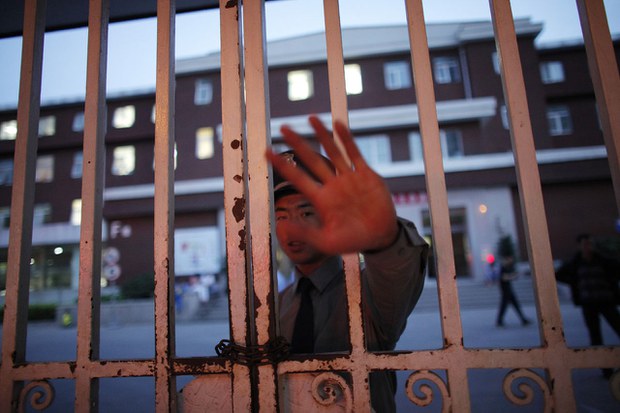Police in China’s Zhejiang hold man after stabbing spree leaves six people dead
Share

The suspect reportedly had been incarcerated in a psychiatric institution, such as the one shown, for lodging official complaints about a land dispute.
Police in the eastern Chinese province of Zhejiang have detained a man following a knife rampage in Pingyang county that left six people dead, with the killings thought to be connected to a long-running dispute with local officials over land.
“On the morning of Jan. 19, 2023 … suspect Yang ***xun (male, 42 years old, from Pingyang) committed an attack with a knife due to a dispute, resulting in the deaths of six people,” the Pingyang county police department said in a statement on its official social media account, deliberately omitting part of the suspect’s given name.
“After receiving the emergency report, police immediately organized forces to deal with the matter, and arrested the suspect,” it said, adding that investigations into the killings are ongoing.
According to a local resident who commented on the story on the social media platform WeChat, two of the victims were prominent officials in Yang’s home sub-district of Hexi.
Another commented that Yang had been treated unfairly by local officials over a land dispute, and had been incarcerated in a psychiatric institution for lodging official complaints over their heads via China’s petitioning system.
Calls to the Hexi sub-district government offices rang unanswered during office hours on Friday.
The ApolloNet news service reported on Jan. 20 that one of the victims had been a local village official.
“He killed the village chief and three family members in one town, then chased another [family member] to another town and killed them too,” ApolloNet quoted a local resident as saying in an online comment.
“All I can say is that they shouldn’t bully honest people, hacking into their homesteads,” the person commented.
“It was a land dispute,” another resident was quoted as saying in a social media comment by the same report. “The assailant had just been released.”
The Toutiao news service cited Yang’s neighbors as saying that two families had been in dispute over a piece of land, with one family using “improper means” to get hold of the land, in an oblique reference to official corruption.
Yang was sent to a psychiatric hospital, which didn’t let him out even to attend his father’s funeral, one local resident was quoted as saying.
Toutiao cited another local resident as saying that Yang had made a “revenge list” while in the hospital, and had warned passers-by to stay clear before starting his attack, which they described as having “a clear purpose.”
“The man had planned out all of these killings, and his goal was very clear,” the report said. “He wasn’t killing innocent people indiscriminately — everyone he killed was connected to this dispute.”
China’s army of petitioners
While further details on Yang’s case weren’t immediately available from official sources, his case has struck a chord among China’s army of petitioners, many of whom have been pursuing complaints against official wrongdoing — often linked to land-grabs and forced evictions by local officials — for years, if not decades, to no avail.
In November 2019, authorities in the eastern province of Shandong jailed a father and son who tried to resist the forced demolition of their home in Linyi county in April 2018, leaving one person injured and another dead.
While petition-related killings have rocked the country from time to time, petitioners who use peaceful means to resist the government also face concerted harassment, state-backed violence, arbitrary detention and incarceration in psychiatric hospitals.
Chongqing petitioner Jiang Linxuan has been petitioning for 10 years after losing his home and land to local government officials.
He said reports of killings by petitioners show the unbearable pressures people are placed under when they try to challenge the actions of the ruling Chinese Communist Party.
“It was too much for him … He would have tried to appeal so many times, but without any solution,” Jiang said. “I never thought I would be petitioning for more than a decade, since 2011, to no avail.”
Current affairs commentator Zhang Jianping said that if Yang really was a mental health patient, as the authorities claimed when they locked him up for three years, he shouldn’t have to bear criminal responsibility for the murders at all.
“From a legal point of view, the administration determined that he was mentally ill, so the law can’t require him to be responsible for these killings,” he said, adding that psychiatric incarceration is commonly used by local officials to stop people from petitioning.
“The crucial thing is how the authorities treat Yang, and what judgment the court hands down, which everyone will have to wait to see,” he said.
Translated by Luisetta Mudie.







